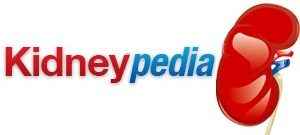Renal disease is a condition where the kidneys will lose its function over time. These organs are important because its job is to cleanse the body of its wastes and also regulates the blood pressure. The term “renal” refers to the kidneys in the body and when people think about these organs, kidney stones (also called renal calculi) often come to mind. Although you will have intense kidney pain from these stones, once they pass you will feel better.
On the other hand, renal disease is a condition that can not be fixed just by taking a drug or pill and will progress over time and if left untreated it can be fatal. Anyone who is experiencing symptoms or are at an increased risk of developing this condition will need to seek medical treatment so it can be managed.
Stages
There are 5 stages of this disease; the first stage is the beginning of the illness where there is only slight damage to the organ. The next few stages 2, 3, and 4 go from mild to moderate to severe and you will lose more function of these organs as you change stages.
Lastly there is the final stage, stage 5. Your kidneys are beginning to fail because your glomerular filtration rate is less than 15 percent. Now you are at the end of the disease and there is almost no function of the kidneys. There is now accumulation of substances such as water and waste. At this stage, a dialysis or getting a transplant is needed to stay alive. Obviously the sooner you seek medical treatment the better. You need to be aware of the signs and symptoms, share it with your doctor and he can begin to evaluate and determine which stage you are in.
Symptoms
It can be difficult pointing out some symptoms you may be experiencing because they differ depending on what stage of the disease you are in. You won’t feel any physical symptoms during the 1st or 2nd stages however, any blood work you have done will come up abnormal. In addition you may see some changes in the urine such as foamy or bubbly urine, possible blood and difficulty urinating.
In stages 3 and 4 you may still feel fine but your appetite will probably change, you can see swelling in the legs, ankles and feet. Other symptoms include high blood pressure, fatigue, back pain and poor digestion.
At the final stage you will find the symptoms of kidney failure are extreme and there are many more of them; to name a few include anemia, diarrhea, vomiting, easy bleeding, numbness and difficulty breathing. The only way to know is to see your doctor who will run a series of tests.
Diet
Your diet will change once you are diagnosed with this condition. Once talking to your doctor he will begin to work with you to develop a renal diet plan and change your eating habits. It will be recommended by your doctor to reduce the amount of drink intake on a daily basis. Its job is to regulate the amount of fluid in the body and when it isn’t working properly more fluids can cause swelling among other things. Your doctor may also advise you to eat foods with phosphorus for healthier bones and potassium to keep your nerves and muscles properly working. Protein and sodium will also be managed by your doctor.
Your doctor will determine the amount of intake of this based on your body size, how much kidney function you have, among other factors. Those people who are at a higher risk are those who are diabetic or have high blood pressure. Diabetes and high blood pressure are the two conditions that are the major causes of renal disease.
